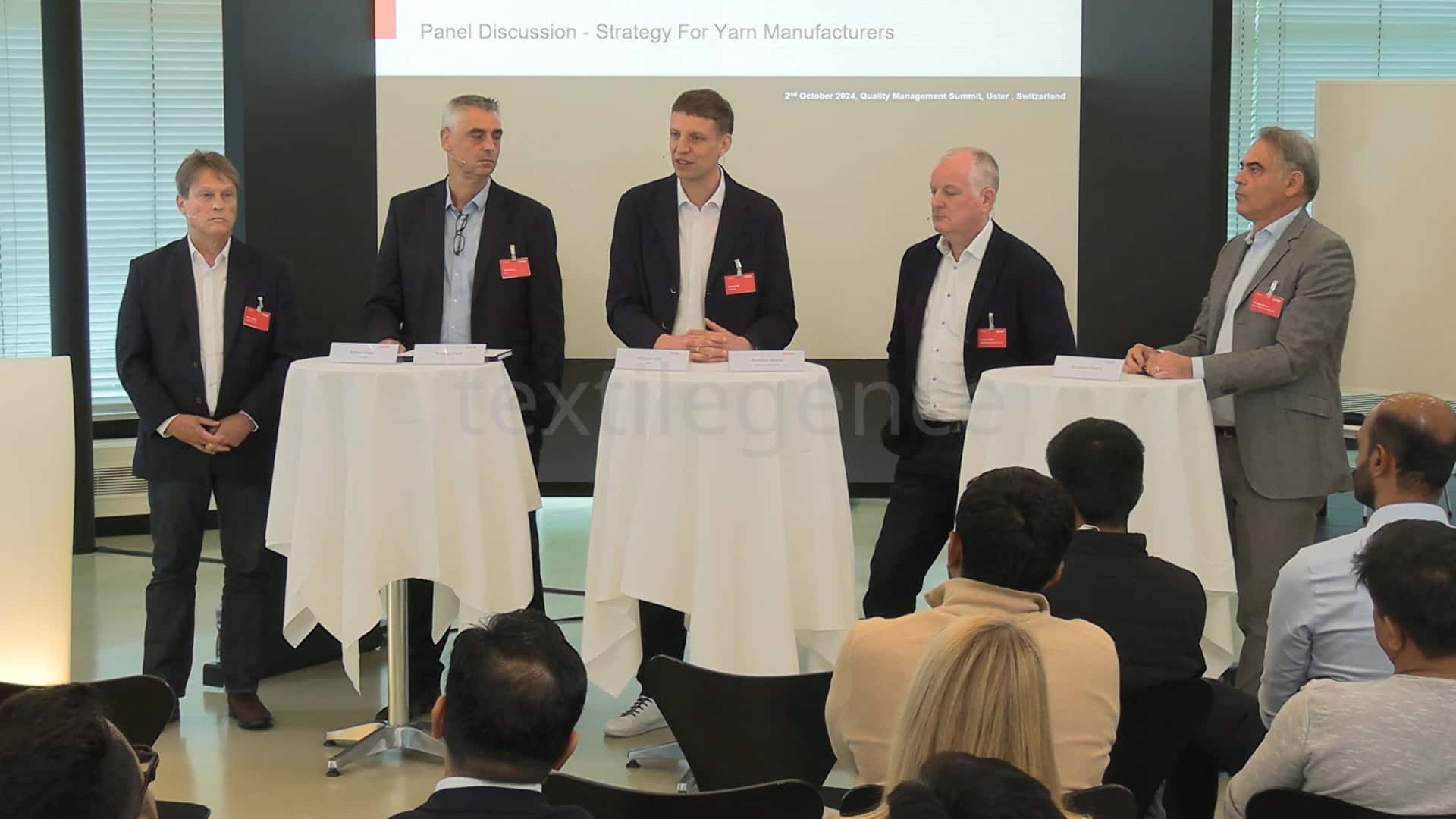Uster Technologies brought textile industry leaders together to discuss the current issues in using recycled raw material. A delegation of spinners from India met experts from Rieter, Säntis-Textiles, Otto Yarns, Gherzi Textile Organization and TVU at Uster headquarters in Switzerland.
The ideas and solutions of the panelists diverge on the subject how to be successful with recycled yarns and they see different approaches to achieve the goal. The quality of recycled yarn could be improved with an additional step between mechanical opening and the spinning process, according to Michael Will (Head Textile Technology & Process Analytics) from Rieter. The pre-opening or carding does not necessarily have to be in the responsibility of the spinners. It could also be done by the fiber suppliers. Andreas Merkel (CEO) from Otto Yarns anticipates better results with pre-consumer fibers. Post-consumer waste remains a difficult raw material – although readily available in large quantities. He forecasts great future opportunities, but it will take some time.
Stefan Hutter, Owner of Säntis-Textiles, also believes in the recycling business, and that recycled material will become a standard. He expects two segments growing: one based on industrial and the other on post-consumer waste. It is stated that a lot of groundwork has been done, but it’s still a good time to jump in on this business.
“Yarn properties are not comparable with virgin fibers”
Looked at from a trading and dyeing perspective, the quality and sourcing of recycled yarns are challenges. Thomas Franz (Sales and Purchasing Manager) at TVU states that yarn properties are not comparable with virgin fibers – and more difficult with cotton than polyester – and so neither dyeing results nor process efficiency are the same.

